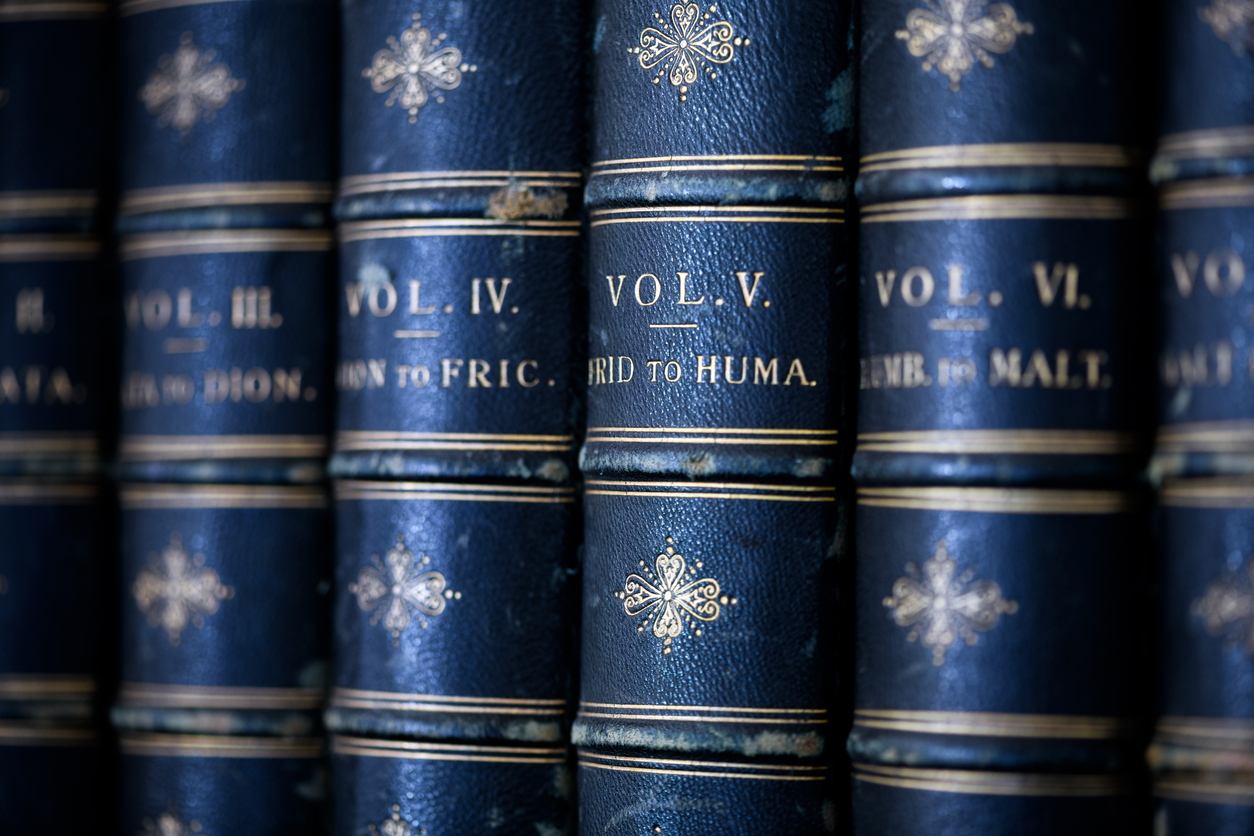It’s a painful process many of us must go through: culling a big book collection, amassed over a lifetime, before moving home. You know it makes sense, as you’ve struggled to house all your books – thousands of them – and they include quite a few you frankly wouldn’t miss. This chore awaits me at some point in the near future, but I do know that my 20-volume Encyclopedia Americana and its sister publication, the 20-volume children’s encyclopaedia called The Book of Knowledge, will be coming with me.
Everything about its concept and design was aimed at fostering curiosity
They were published by The Grolier Society of New York in 1957. They take up an inordinate amount of space on my bookshelves and I barely look at them from one year to the next: we reach for the internet when we want information. And 1957 – really? It was another world back then. But these two sets of books bound in handsome burgundy leather have been with me since childhood and I won’t abandon them now.
My father got them for us when we were a recently arrived Hungarian refugee family in America. He was a journalist, novelist and broadcaster, and a great believer in acquiring knowledge. We had little money to spare but somehow he managed to buy them, once we’d moved out of the various temporary homes provided by refugee agencies and our kindly ‘sponsors’ and settled into a modest apartment in the Bronx. That was in 1959 or early 1960. (Did he buy them from one of the door-to-door salesmen so ubiquitous back then, and pay in instalments? Or were they second-hand? I wish I knew.) By then my brother and I were old enough to read The Book of Knowledge and I took to it eagerly. It was extraordinarily child-friendly and everything about its concept and design was aimed at fostering curiosity. My father encouraged me to read an entry each night before lights out.
The Book of Knowledge seemed to encompass absolutely everything, opening the door to endless fascinating subjects – people, places, history, science, literature and art. The typography was stylish and it was attractively illustrated with both black-and-white and colour pictures. There was a General Index, starting with ‘Aachen, Germany’ and ending on ‘Zworykin, Vladimir Kosma, American scientist’. And there was a separate Poetry Index because the encyclopaedia was very big on American and British poetry. When I stumbled upon Edgar Allan Poe’s The Raven, aged perhaps 10 or 11, I was mesmerised. It was full of unfamiliar words, and naturally I didn’t get the references to Greek and Roman mythology, but the rhythm, musicality and enthralling mood of it grabbed me, body and soul. It has never been supplanted as my favourite poem.
I went to P.S. 122, a decent enough elementary school in those days. Growing up in the Bronx during that era was safe for kids, as it was old-fashioned mafia territory and they didn’t tolerate street crime. I don’t recall ever bumping into the mob; as far as I was concerned the scary local figures were the Catholic nuns at St Nicholas of Tolentine, where I had my First Communion. So the Bronx was alright, but it was a very limited little world. When I yearned for a bigger one, and I often did, I reached for The Book of Knowledge. Later on, in my teens, I graduated to the Encyclopedia Americana. But unlike the Knowledge, which fed into my freewheeling reading for pleasure, I used the Americana mainly as an authoritative reference source.
To younger generations, the notion of going to a shelf and reaching for a reference book to look something up, as opposed to simply going online, would be positively outlandish. And of course I too click away on the cornucopia of websites when I need some information. But I’m profoundly grateful to have grown up at a time when learning, discovering and generally expanding one’s horizons took place amidst paper and leather and beautifully designed layouts, instead of plastic and microchips and pop-up ads. One day, when I’m really old, the The Book of Knowledge will be my ‘time machine’. I’ll open it at random and be transported back to the Bronx and my top berth of the kids’ bunk beds I shared with my brother, with Dad bringing me an apple to munch on as I delved into those leatherbound pages.








Comments